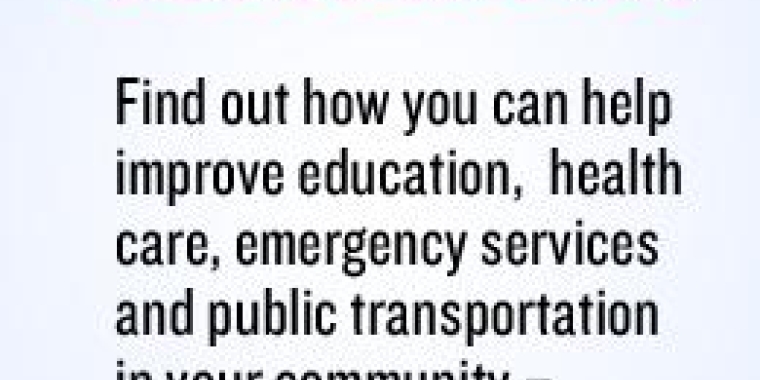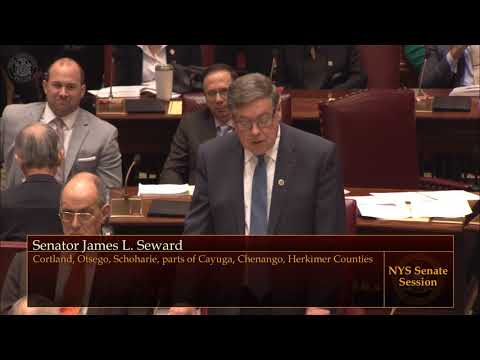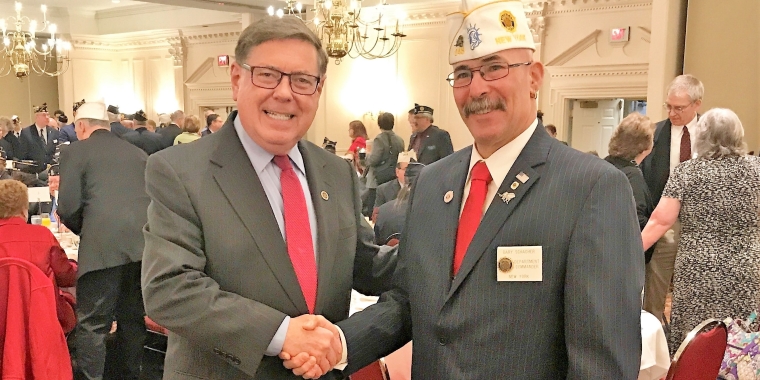
Census - Count Me In
James L. Seward
April 12, 2010

In case you haven’t heard, we are in the midst of counting everyone who lives in the United States, and your participation is needed and encouraged. The census includes citizens and non-citizens – people of all ages, races and ethnic groups. It is vital that everyone take part.
The census is a requirement of the U.S. Constitution. It was first conducted in 1790 and has been carried out every ten years since. The 2010 census is the 23rd headcount of the population in our nation’s history. The final tally of the first census was 3.9 million; this year the number is expected to be somewhere in the neighborhood of 309 million. Certainly, our nation has grown a bit.
One of the first questions many people ask is, “How does the census help me?”. The answer is all around. Every year, the federal government can allocate more than $400 billion to states and communities based, in part, on census data. Census data guide planning for new hospitals, roads, job training centers, schools and more. The information is used to determine the need for additional social services, block grants and other grant programs essential to many communities. The numbers are also used when deciding on a diverse range of local initiatives, from justifying the need for an after-school program to designating urban revitalization areas.
An inaccurate count could mean the loss of vital public services. In the past, thousands of New Yorkers have not been counted. That means their communities are passed over for transportation projects or funding for new police officers. By ensuring everyone is counted during the census, we are guaranteeing a fair distribution of funding.
Census numbers are also used to determine our representation in Washington D.C. Without a full accounting of our state’s population we may not have our fair share of congressional representatives.
The form is simple, made up of ten questions, and takes just ten minutes for the average household to complete. It is also one of the shortest in history, asking households to provide the names of residents and their sex, age and date of birth, race, whether of Hispanic origin, relationship to householder, whether the home is owned or rented and telephone number. There are also two questions to ensure an accurate count and good data quality. Note that the form does not ask about citizenship or legal status, or for anyone’s Social Security number.
If you have any concerns about your personal information being utilized for purposes other than the census, you can rest easy. By law, the census bureau cannot share an individual’s census questionnaire responses with anyone, including other federal agencies and law enforcement entities. The personal information you provide is completely confidential so no one will know your name, who is staying with you, whether or not you are a citizen, or any other personal details about your life.
Already millions have filled out the census form and mailed it back, however, participation is far short of complete. At this writing, the national participation rate is right around 65 percent. Some individuals may have never received a form. In those instances, a second form was recently mailed and may have already arrived. In still other cases, that second form may not find its intended target either. In those situations, a census taker will make a home visit.
The census taker's primary responsibility is to collect information from residents who have not sent back their 2010 census forms. Starting in May, census takers will visit all of the addresses that didn’t send back a filled out census form. If no one answers at a particular residence, a census taker will leave a door hanger with a phone number for residents to call and schedule a visit. The census taker will make up to three visits and will only ask the questions that appear on the census form.
If you have additional questions, or would like more information, please visit the U.S. Census Bureau website.
Share this Article or Press Release
Newsroom
Go to Newsroom
Seward, Senate Republicans Call for Tax Relief Now
March 12, 2019

Senator Seward Welcomes Veterans to Albany
March 12, 2019

